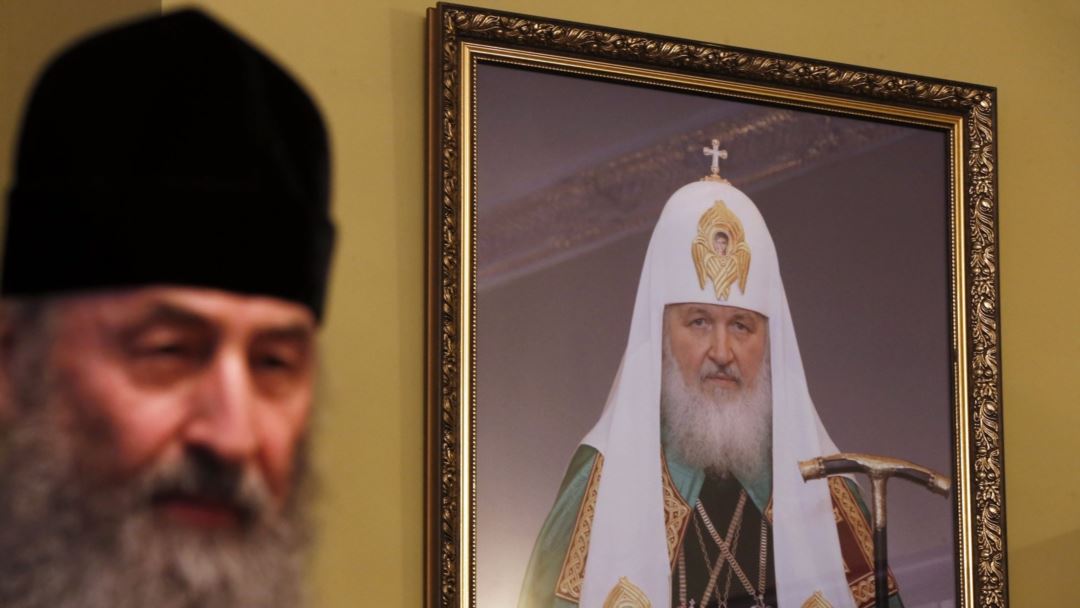The amendments to the rules governing the Russian Orthodox Church have been presented as giving the Ukrainian Orthodox Church of the Moscow Patriarchate (UOC MP) more independence in fact further restrict the ability of that church to act on its own, according to an analysis by the Religion in Ukraine portal.
This week, Metropolitan Onufriy of the UOC MP proposed at the meeting of ROC MP hierarchs in Moscow certain changes in the church’s statue to “avoid further speculation directed at undermining the authority of the UOC in the eyes of millions of Ukrainians.”
Because the UOC MP is viewed by many Ukrainians as an agent of the state that has invaded their country and because it is challenged by two other Orthodox Churches, the Ukrainian Orthodox Church of the Kyiv Patriarchate (UOC KP) and the Ukrainian Autocephalous Orthodox Church (UAOC), some want to stress its independent standing.
Onufriy proposed three changes in the ROC MP statute that appeared to some as offering that possibility: They stressed that the UOC MP is run on the basis of the ROC MP’s offer of “self-standing” of October 1990, has broad autonomy from Moscow, and is guided by Moscow’s provisions of such autonomy.
But when the ROC MP “approved” the Ukrainian churchman’s proposals, it significantly modified them and in fact in most regards imposed even greater Muscovite control over the UOC MP, according to an analysis by the Religion in Ukraine
portal.
- First of all, in point three of the amendments, the ROC MP specifies that the UOC MP is guided by all the decisions of the former in 1990. That means the ROC MP has the power to approve all changes in the statue of the UOC MP, something that had never been required of the UOC MP up to now.
- Second, the amendments require that all UOC MP churches remember ROC MP Patriarch Kirill in their services, again something not demanded of them up to now but inserted at the insistence of Patriarch Kirill who is unhappy with the fact that many UOC MP churches do not mention him anymore.
- And third, the new amendments say that the UOC MP must get the approval of the ROC MP for any changes in the number or borders of bishoprics, again something not required by UOC MP statutes. And they specify that all decisions of the ROC MP are obligatory for the UOC MP, something not made explicit ever before either.
- Other points in the amendments also “strengthen the dependence of the UOC on the ROC,” the analysis continues, “in particular, they affirm that the UOC ‘receives the holy chrism from the Patriarch of Moscow and All Rus.’”
Language in the amendments benefits the UOC MP by specifying that the UOC MP has under its authority “the highest church-legal instance” rather than being subordinate to the ROC MP. But in fact, as the analysis continues, “the church court of the ROC even before had de facto not functioned in the UOC.”
And the UOC MP also benefits from language specifying that it is administered from offices in Kyiv, something required so that the UOC MP can claim that it is not a church “’with a center in the country of the aggressor,’” as many have often and with justice implied and which the new amendments make even clearer.
Religion in Ukraine points out
that many in the UOC MP as well as in the two other Ukrainian Orthodox churches understand that Moscow hasn’t given the UOC MP anything real but rather only something it can use for propaganda purposes.
And consequently, what the ROC MP and the UOC MP are seeking to present as something new will only confirm the old subordination, thus offending some in the UOC MP, and spark new demands by other Orthodox in Ukraine for real autocephaly.
Read More:
- A Ukrainian National Church — Ukraine’s hopes and Moscow’s traps
- Ukrainian church’s gains could be reversed if Kyiv bans Moscow Patriarchal Church in Ukraine, Greek Catholic priest says
- In fighting Russia, Ukraine must not become like it, Ukrainian churchman says
- Russification through the church
- Russian court orders demolition of Ukrainian Orthodox Church (Kyiv Patriarchate) in Moscow Oblast
- Scholar: Russian Orthodox Church Moscow Patriarchate supports repressions, militarism
- How Russia used Orthodox fundamentalism to hijack the Church Council in Crete

